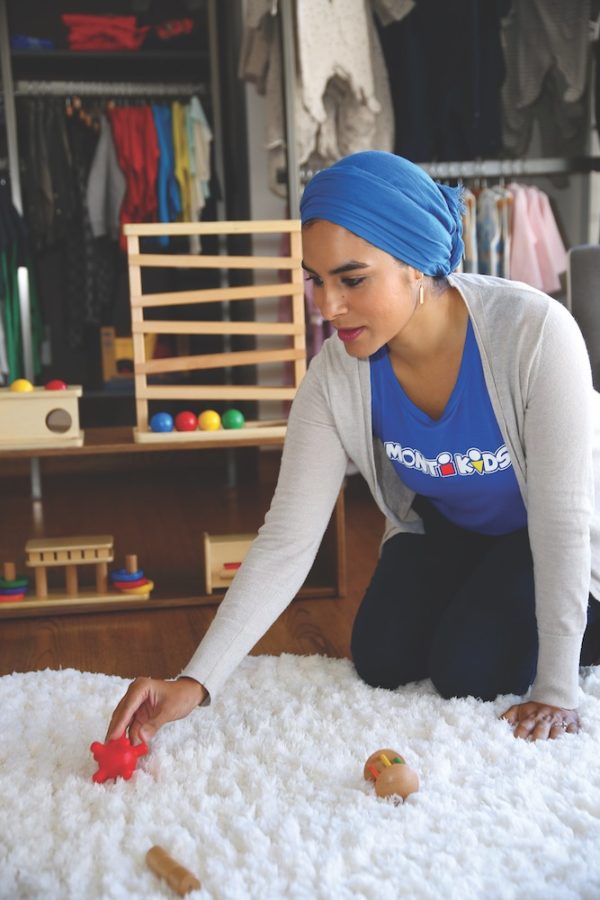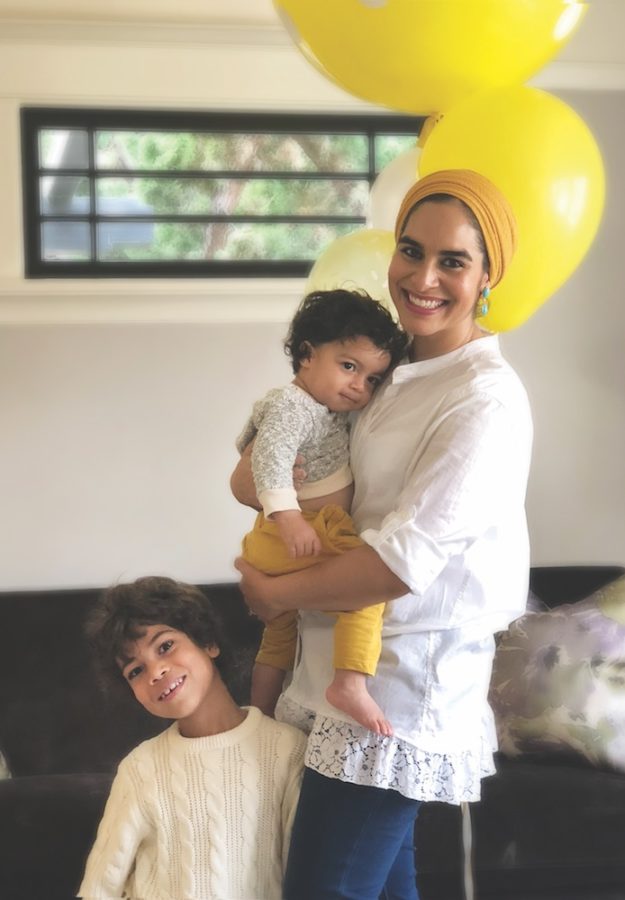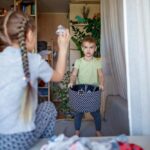Mom with a mission: Zahra Kassam

CEO and founder of Monti KidsHome: Oakland, CaliforniaKids: Musa (6), Zayd […]
CEO and founder of Monti Kids
Home: Oakland, California
Kids: Musa (6), Zayd (1)
Instagram: @zahraikassam
Pregnancy craving: Strawberry ice cream
Current daydream: Getting rid of all our stuff and living like total minimalists
Congratulations on your growing family! How has it been transitioning from one to two?
Musa was 5 when Zayd was born, and I love the age difference. When Musa came to the hospital to meet his new baby brother, I said, “I hope one day you will be best friends.” Musa replied matter-of-factly, “We already are.” He is incredibly kind and loving toward his brother.
Musa is independent, hilarious, kind-hearted and wise, while Zayd is also independent, magnetic, strong and social. Zayd’s name means “super abundance” in Arabic, and he has absolutely brought that into our lives! The big challenge for me has been making sure I give enough time to each one of them, my work, my husband and myself. (I’m working on remembering to keep myself on that list!)
You have quite a résumé. Have you always been interested in child education?
Growing up, it was always my dream to be a teacher. In the sixth grade, I was assigned a first grade reading buddy, and I’ve been teaching ever since. I studied child psychology at Harvard College, received my master’s from the Harvard Graduate School of Education, and became an internationally certified Montessori teacher for children from birth to age 6. I thought I would spend my career in the classroom.
When my son Musa was born, the school where I was teaching started at age 3 (like most preschools around the world). Researchers know that 85 percent of the brain is formed by age 3, and that this is the foundation for all future learning. Yet, children start school after that critical period, and parents are left guessing how to support their baby’s development. This education gap is the problem that drives me and that led me to create Monti Kids.

How has becoming a mother affected the work you do?
When I became a mother, I began to empathize with parents on a very personal level. During my maternity leave, I taught “Baby and Me” classes. I saw that the parents in my classes were so selfless, and that they would do anything to give their babies the best start; I felt the same way.
It really upset me that parents didn’t have access to great resources and tools to support their baby’s learning and development at the most critical time. Monti Kids is grounded in this empathy for parents and, of course, in a love for children. This love and connection with parents and children has helped us to build an authentic brand and a supportive educational program that really resonates with families.
Can you explain more about the education gap and how Monti Kids offers a solution?
Brain development is cumulative, yet age 0-3 is virtually ignored by our education system. We provide the only Montessori program delivered into the home that is designed and safety-certified for babies.
Every three months, our families receive a delivery of authentic Montessori toys, proven by 100+ years of use in classrooms worldwide, as well as short videos in their inbox guiding them through when, how and why to introduce the materials, how to set up their play area at each stage, and distilling the most valuable child development research for each key moment in their baby’s growth. Parents also get access to a private community moderated by internationally certified Montessori experts who offer personalized support.
Any advice you can give to new parents wanting to foster child education but aren’t sure where or how to start?
I think there is a lot of noise out there, and it’s helpful to understand what a high-quality, developmentally appropriate education for babies looks like.
Research has confirmed that babies do not learn from apps. In fact, screen time has negative effects on an infant’s development. Companies out there who are trying to get babies to do things that older children do, but earlier, are also misguided. Babies do not need to learn how to read or do math. A high-quality education for babies means setting up a rich environment where they can explore and play with intelligently designed toys introduced at the right time to meet their needs. It’s best to keep your children challenged so they don’t get bored, but not stretch them so much that they get frustrated. A service like Monti Kids can make this very easy for parents.

How do you balance family life and work life?
I have my own business and two young children, so balance is a constant struggle. Striving to keep everything in sync is a goal that puts even more pressure on mothers. Some weeks I work more than I see my family because I have to travel or have a big project that needs to get done. So, I’ll make up for that on the weekend by clearing our social calendar and spend quality time together as a family.
Sometimes, if it feels like I’ve been going too hard at work, I take a day off to be with Zayd, pick up Musa from school and take him out somewhere. I have also discovered that when I make time for self-care (for me that means going to my dance studio regularly), everything is more manageable, and I can bring my best self to my work and my family.
What does your crew like to do for fun?
We love to be outside in nature, whether it’s going for a hike in the California redwood forests or going to the beach. Nature is so centering for me and for our kids. I love watching them run, yell, play, and discover and do things that they can’t always do when they’re inside; it feels like I’m watching my boys in their truest state. We also love board games, drawing and playing basketball with the hoop in our driveway.
Is there a piece of parenting encouragement that has resonated with you most?
I grew up with a mom who didn’t work outside the home. She was always there for us and cooked the best food every day. If I compare myself to her, I can start to feel very guilty. I once spoke about this guilt with a very wise woman who told me that she had learned that each child needs 20 minutes of quality time per day to feel emotionally cared for. I have been practicing this for some time—20 minutes when I put down my phone and all other distractions and just spend face-to-face, heart-to-heart, time with my boys, one at a time. This fills me up, and I know it does the same for them. This advice has relieved a lot of my guilt and also helped me to develop very close relationships with my sons.







